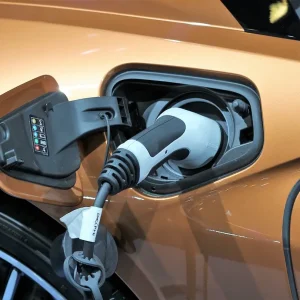Ford has just been crowned the UK market leader in total car and CV registrations, achieving its highest February sales since 2004. This probably comes as no surprise for a manufacturer that is almost constantly leading the market in sales.
At the Geneva Motor Show, the manufacturer may have put its pedal to the metal reincarnating the 1968 Mustang from the film Bullitt, but its focus at the show remained on some specific trends it has seen in the market, notably diesel, to which the manufacturer still pins its hopes for a significant future in fleet and elsewhere.
Ford’s European vice-president of marketing, sales and service, Roelant de Waard told BusinessCar, “We wouldn’t find it the right decision to move away from diesel because it’s best for CO2, we’ve got the NOX under control, it’s better fuel economy-wise, it has cheaper operating costs and it’s therefore by far the most efficient choice. We’re basically putting it back on the map and allowing it to continue to be the powertrain of choice for us.”
A significant update for Ford in recent weeks is its Edge SUV, which had a prominent position on its stand at the show. Later in the year, the manufacturer aims to innovate the model even further by bringing in an eight-speed automatic transmission and a higher-powered diesel engine. “These changes will make sure that the fuel economy improves, which is a very important and constant step forward we need to be making. The new engine makes it Euro 6.2 compliant and, from a NOX perspective, it will be comparable with petrol’s – another move by us to ensure that diesels continue to be the powertrain of choice,” he said.
De Waard’s stance on diesel in the future of the industry is just as positive. “We plan to continue with our diesel offering and we think it has a role to play for all manufacturers,” he said. “If diesel goes away, it would be a significant challenge towards the 2020 fleet average that we all need to achieve.”
Even the new Ford KA+ is set to get a diesel engine and the manufacturer has recently announced that the EcoSport has a 1.5-litre diesel too. In the Kuga, Ford has actually downsized from a 2.0 to 1.5-litre diesel to make it a good alternative when it comes to CO2 emissions, said De Waard.
All this is part of a conscious decision to appeal to fleet buyers. “The residuals of our engines are strong, meaning that the total cost of ownership is very attractive for fleets,” he explained.
As for other trends in the fleet market and overall, De Waard draws attention to buyers’ demand for image and practicality. “We see a clear movement towards two-wheel drive so we have added this option to EcoSport now for those who are wanting it,” he said.
“Edge will also be available in front-wheel drive only towards the end of the year. A lot of people recognise that they’re not going to go off-road, and buy the car for other reasons such as practicality and interior space, so actually two-wheel drive has become such an important option for us.”
A significant proportion of Ford’s products are now crossovers, reflective of 30% of the total car market now. At the show, Ford showed the KA+ and an ‘Active’ version of the car, which will also be available on the Fiesta.
“A third of the entire passenger car market could well be SUVs in a few years, looking at how many are being released now, and they used to be vehicles that weren’t even allowed in fleet policies,” De Waard said. “They are much more competitive now and they’re not the inefficient cars they were seen as before.”
According to De Waard, Ford will continue to respond to the SUV trend. “Next to the sporty ST Line pillar you’ll start to see an Active pillar too, which combines SUV styling into some of our most popular cars,” he said.





